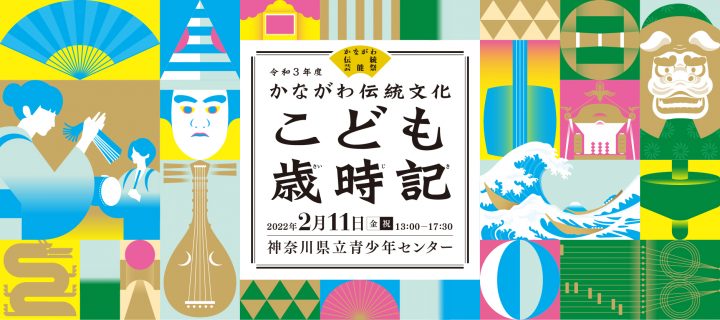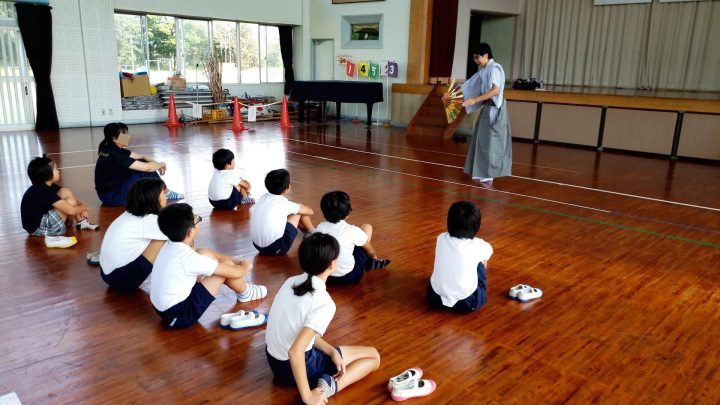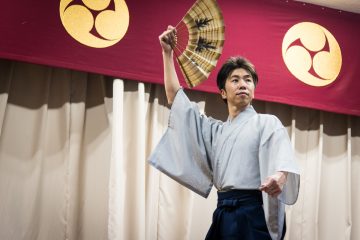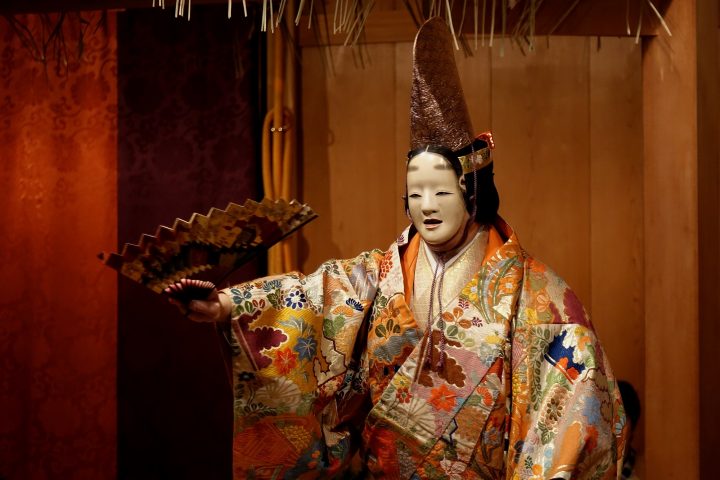Developing People
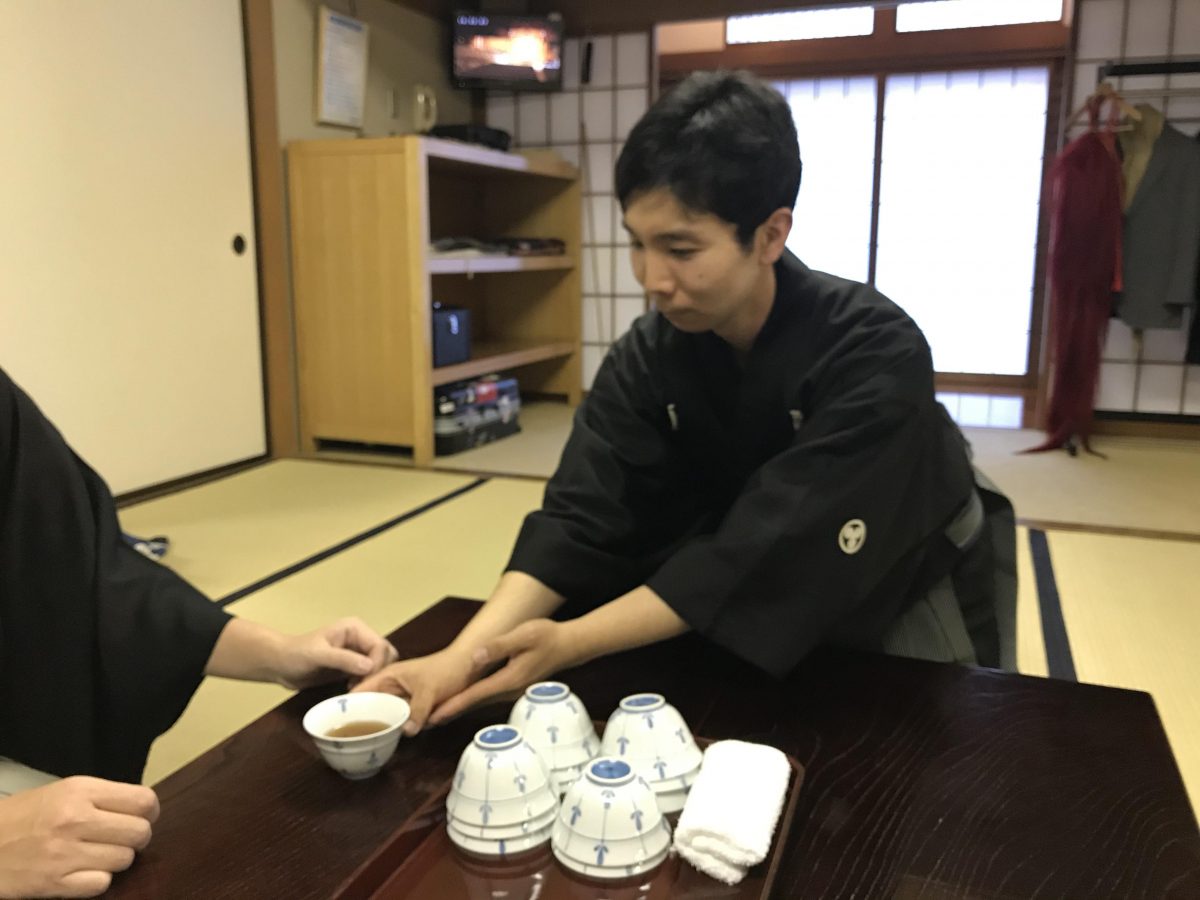
A stage for Kyogen performers living in the 21st century
Vol.12 Developing People
Ozo doctrine (Noh performer Kyogen style Ozo school)
I think it's the same in any organization, but developing people is difficult!
I currently have one apprentice under my tutelage. He is five years younger than me and came to my father's school after graduating from university. Naturally, I became his instructor.
It was my first experience raising someone, so I spent my days trying to figure out how to interact with them and how to communicate with them. Then I read Shizuka Ijuin's book, "The Way of Adults," and it made me realize something.
"When scolding someone, scold them in your own words."
"It's okay to be unreasonable. Society is even more unreasonable."
Until then, I had always kept a step back, but I followed Ijuin's advice and decided to express my thoughts in my own words. Sometimes I say a little too much, but when that happens, I make sure to follow up later.
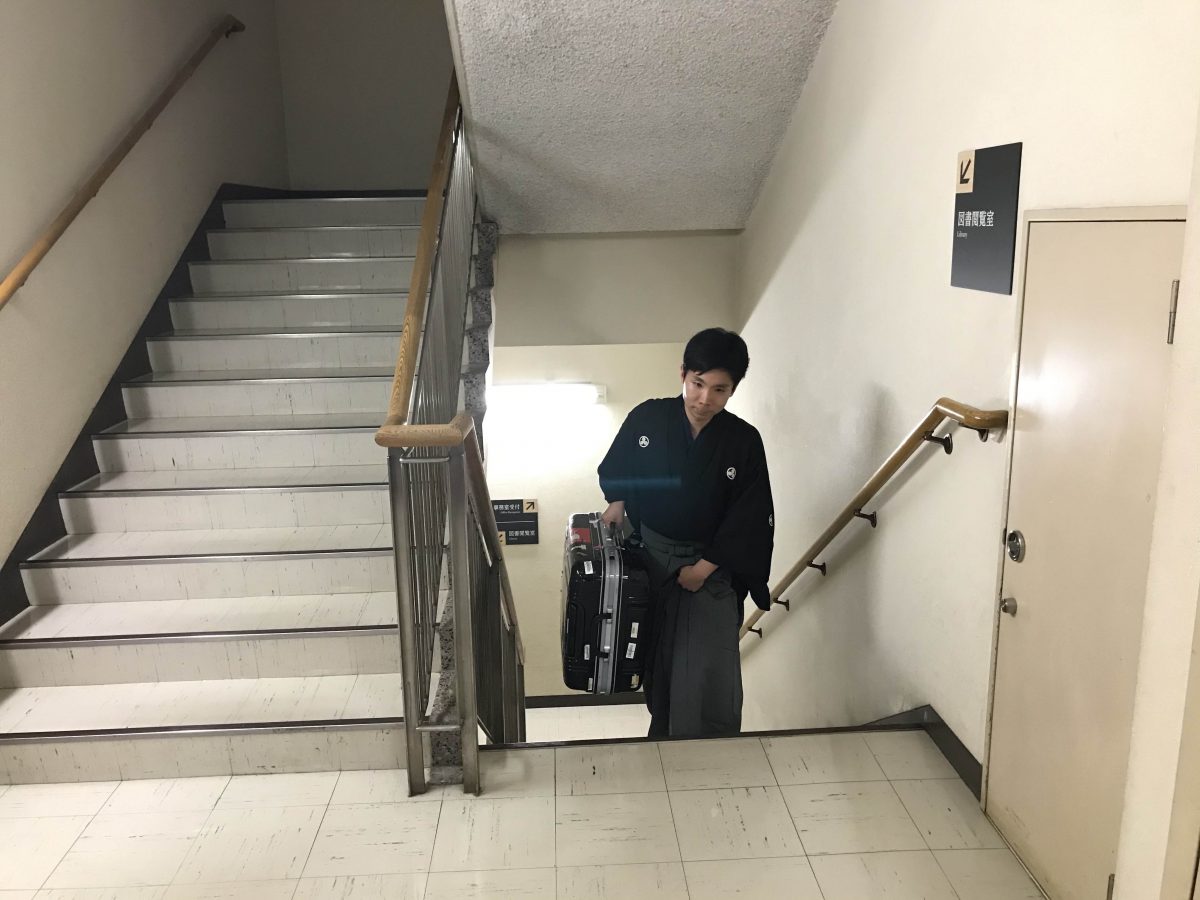
The apprentice's training begins with the role of "bag carrier." On practice days, they are asked to clean up in the morning. They are also taught how to clean the tatami mats and stage floors from the very beginning.
On the day of the performance, the costumes are carried and taken to the dressing room. In the dressing room, the costumes are arranged on the costume shelf. If there are any props that will be needed on stage, it is important to prepare them as well. If they do not know how to prepare them, we will teach them and answer any questions they may have. We will also warn them if they are mistreating their costumes.
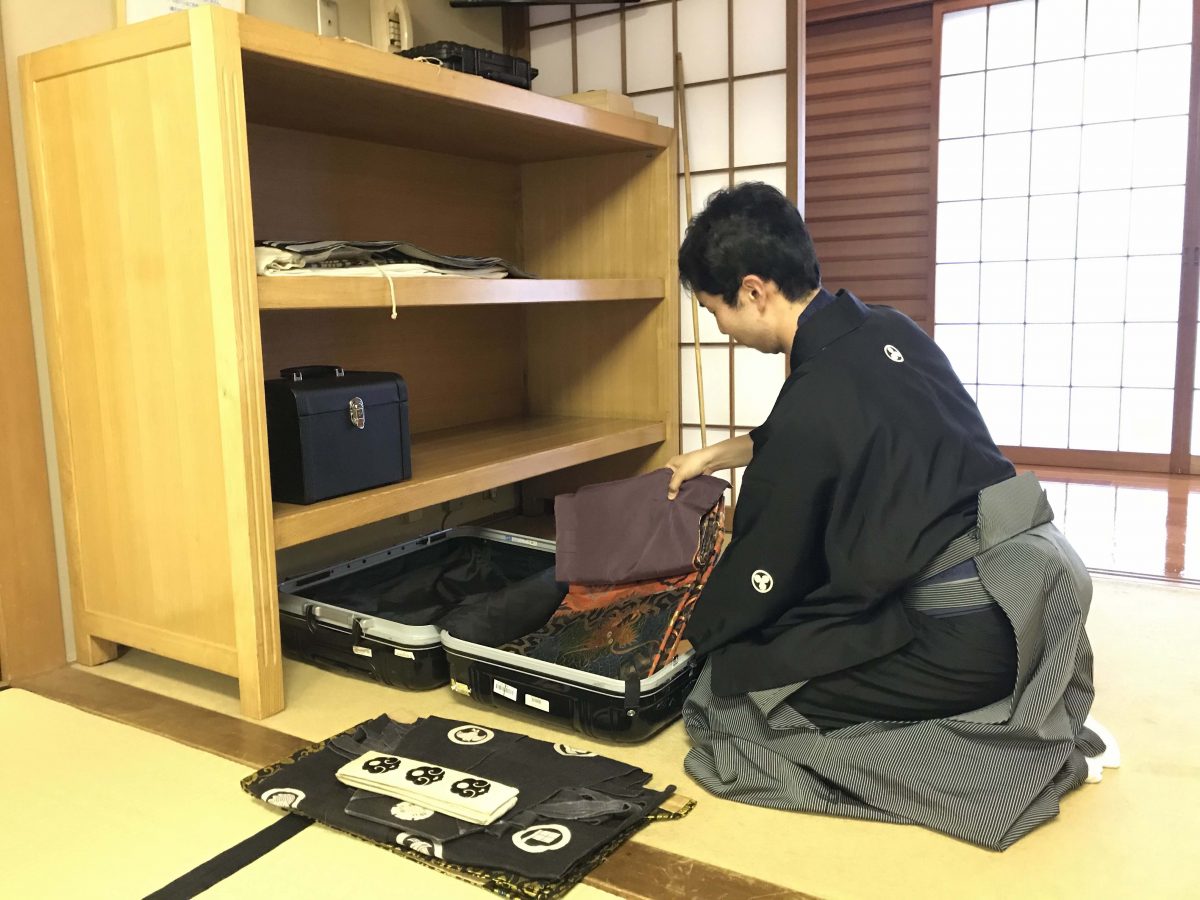
Serving tea is also an important job.
They are given detailed instructions on the timing of pouring tea and how to serve it. For example, if they don't add a comment like "Would you like some tea?" or "I've made some tea for you," it will be difficult to tell who the tea is for. The tea should be 80% full.

They also have to be taught how to put on the costumes. It is important to do so neatly, carefully, accurately and quickly. If they can't do it, they are scolded and sometimes even get angry.
Even when it comes to folding something, we provide guidance to ensure that incorrect creases are not made.
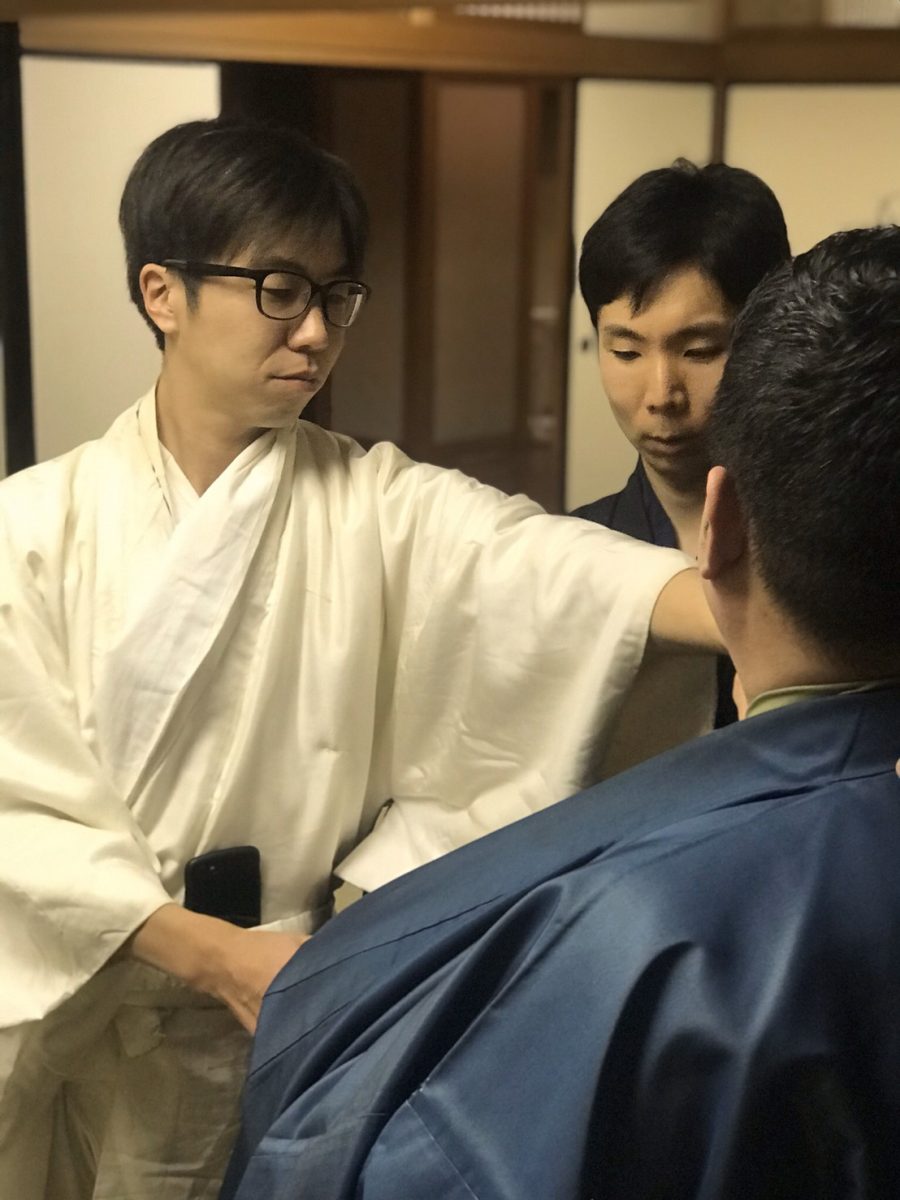
As the saying goes, "A disciple is one who seeks instruction," so I generally don't "teach" them. I let them watch and memorize, and if they don't understand, I let them ask questions.
By doing so, you will naturally develop a proactive attitude towards tackling things. It is not something to be concerned about, but something to encourage. What do you need now, and what should you do? You have to think for yourself and solve the problem yourself.
The trust that is born there becomes a strong bond, and strong teamwork is born.
It's not just about the stage, but also about his attitude toward his work, his manners, and how he should be as a person. I feel that it is my duty as his tutor to raise him so that when he becomes a full-fledged actor, he will not embarrass himself wherever he goes.
He has also been a disciple for 10 years. I think he has followed me well. We are different ages and were born and raised in different environments. Although we have different values and ways of thinking, I would like to continue to build a good relationship so that we can recognize the good qualities of our disciples and respect each other.
